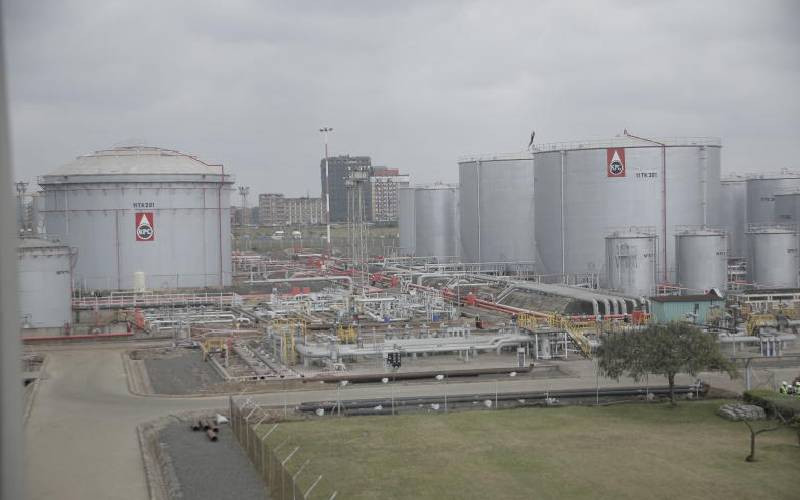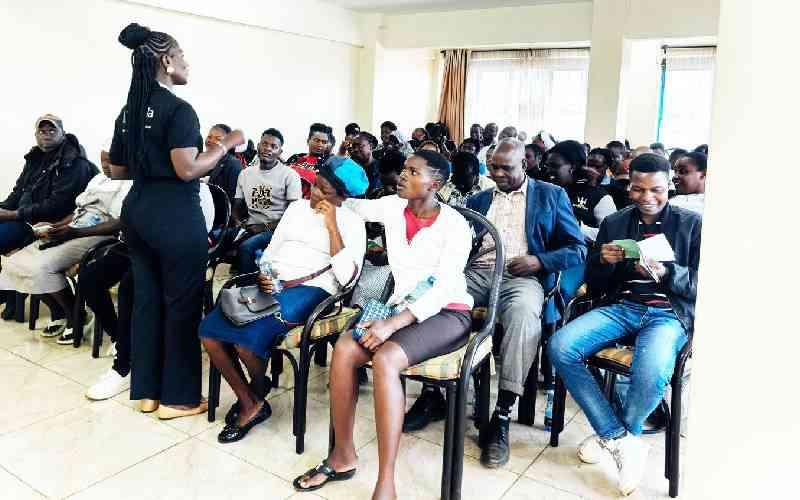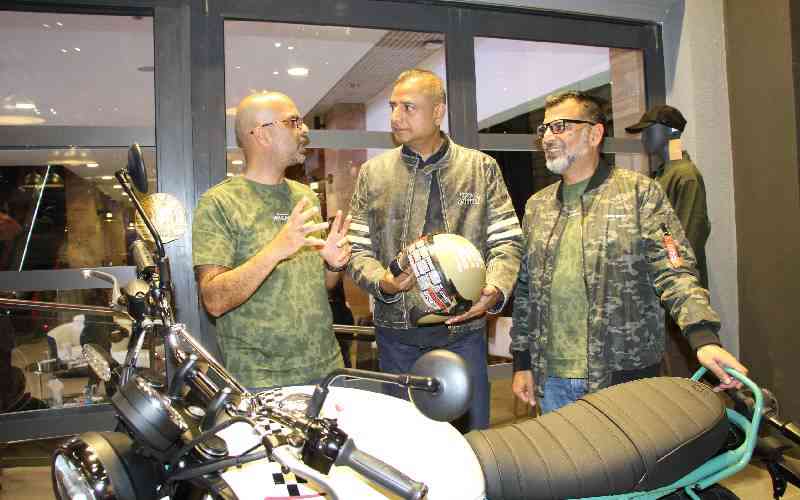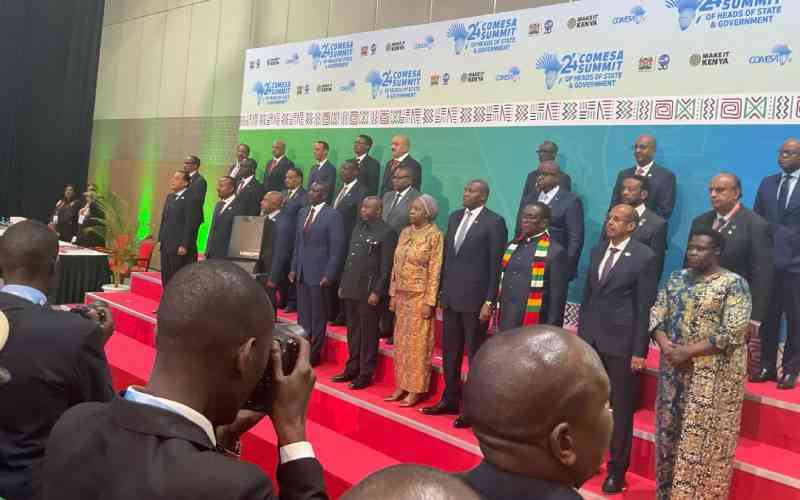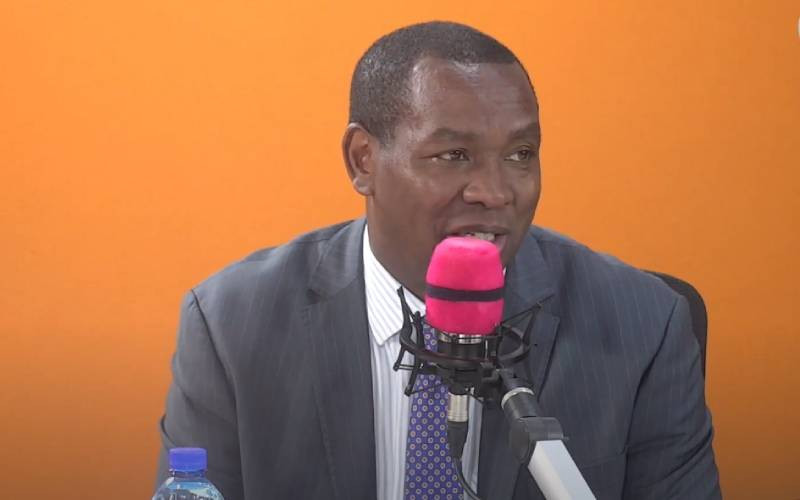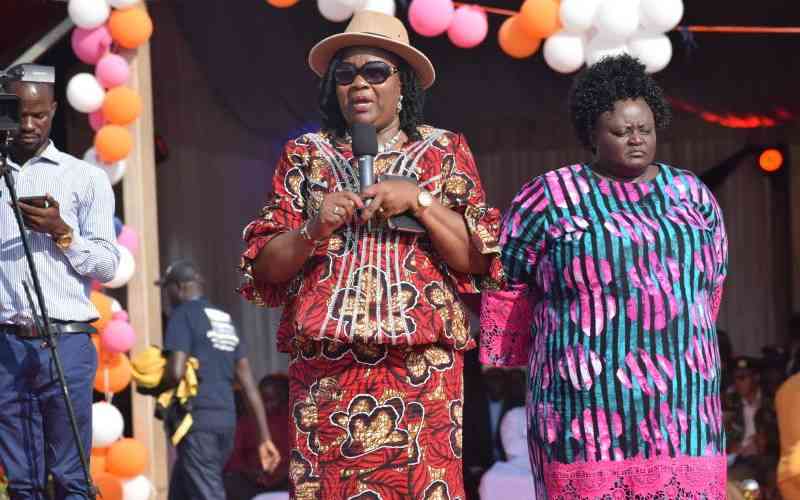
ODM leader Raila Odinga's wife Ida Odinga has called on continued efforts to fight fistula.
While speaking during the launching of Integrated Fistula Treatment camp at Migori County Referral Hospital in Migori County on October 7, Canon Ida stressed the need for early detection, timely intervention and sustained public awareness.
According to Dr. Ida, there is need to confront the silent crisis of fistula, a condition that is both preventable and treatable but continues to rob women of their dignity, health and place in the society.
“No woman should suffer in their shadows and be cast aside because of this condition. We are here to break the silence,” Ida said.
She observed that women with fistula often faced stigma, isolation and rejection from their families and community.
Ida called on stakeholders to ensure there was awareness creation for information to reach people in the villages.
She pointed out that fistula needed to be talked about in churches, public places and chamas where the information and help could reach the people suffering from fistula.
She highlighted a worrying trend in fistula cases that were reported in the country, citing that one per cent of women in their reproductive age reported symptoms of fistula, translating to 120, 000 women nationwide with 3, 000 new cases annually.
According to 2022 Kenya Demographic and Health Survey, teenage pregnancy rates which contribute to the risk of fistula remain a concern with 15 per cent of adolescent women aged 15-19 having been pregnant.
“These are not just numbers they represent lives disrupted and dreams differed and dignity denied. We must do something about fistula,” Ida remarked.
She highlighted limited availability of emergency care in Migori County, saying it indicated that many women in the region remained vulnerable particularly those in the rural communities where healthcare infrastructure is restrained and skilled medical care constrained.
Migori Governor Ayacko who hosted Ida during the launch that was conducted in partnership of his administration, the Ministry of Health, AMREF Kenya, Flying Doctors and M-Pesa Foundation underscored their commitment in restoring the dignity of women living with obstetric fistula.
He highlighted the launch as a journey to improve maternal and child health and ensure that no woman suffered from the treatable and preventable condition.
“We are operationalizing theatres and upgrading hospitals to ensure that every expectant mother can access safe delivery services wherever they are,” Governor Ayacko said.
Stay informed. Subscribe to our newsletter
He assured residents of their continued efforts to improve staffing saying that they have promoted and recruited new health workers.
The fistula camp which started on September 26 and runs to October 10 targets 100 women with 39 having been treated during the exercise.
Meshack Ndirangu who is the country director for AMREF Kenya said that together with other partners, they would run the Integrated Fistula Program in Migori, Kiambu and Kilifi in a bid to stop new cases of fistula.
The partners are the Ministry of Health, county governments, Flying Doctors, M-Pesa Foundation, UNFPA and Johnson and Johnson.
He said this would also help clear the back-log and help build county-run services for screening, surgery, follow-up and reintegration.
“We will train health workers, strengthen referrals and use data to reach every woman with fistula, embed routine care in every facility, confront stigma, support women after surgery and measure results,” Dr. Ndirangu said.
He encouraged counties to fund prevention and treatment of fistula, and communities and Community Health Promoters (CHPs) to ensure early antenatal care, facility delivery and referral to surgery.
